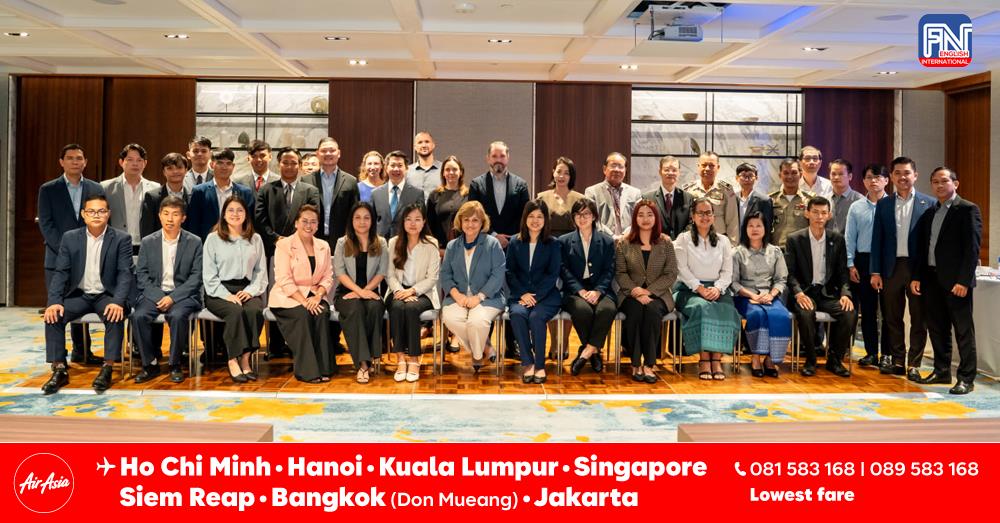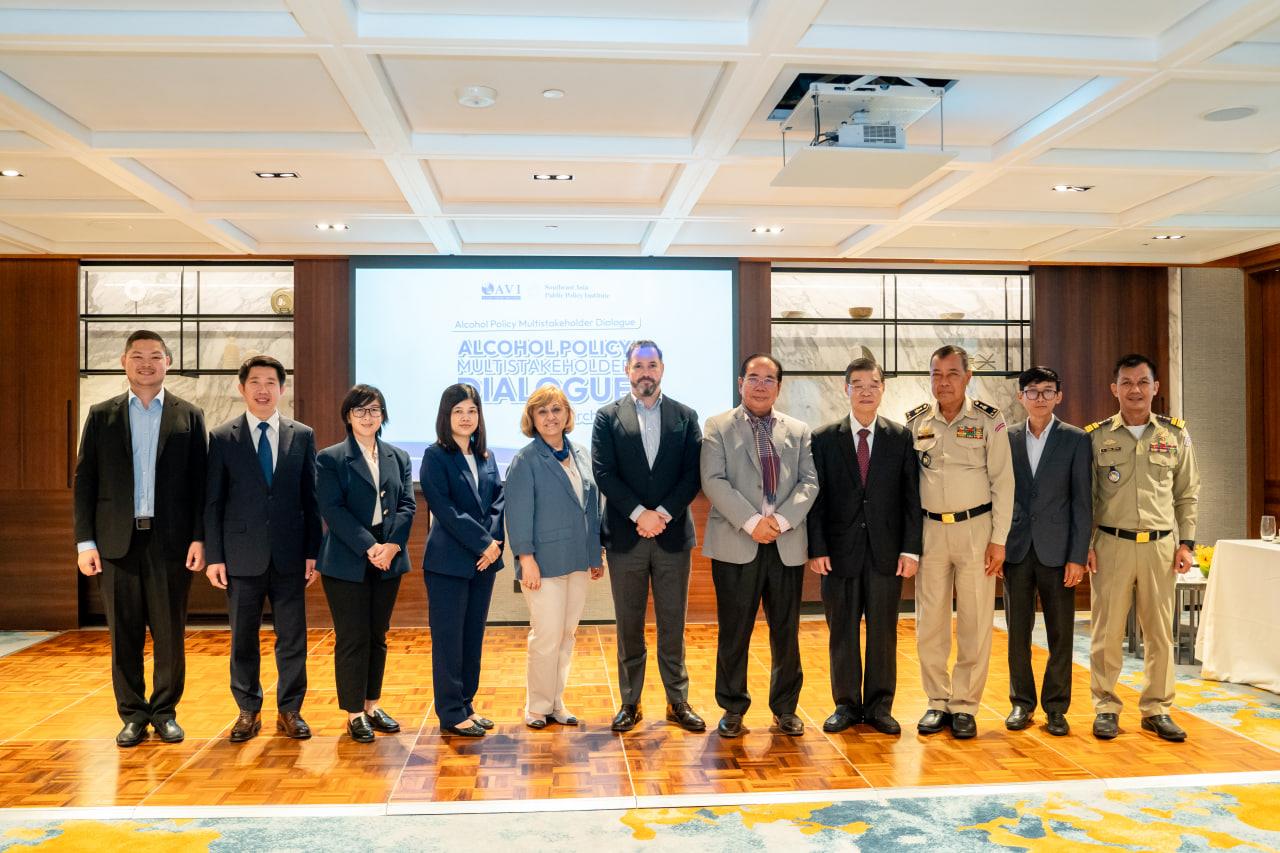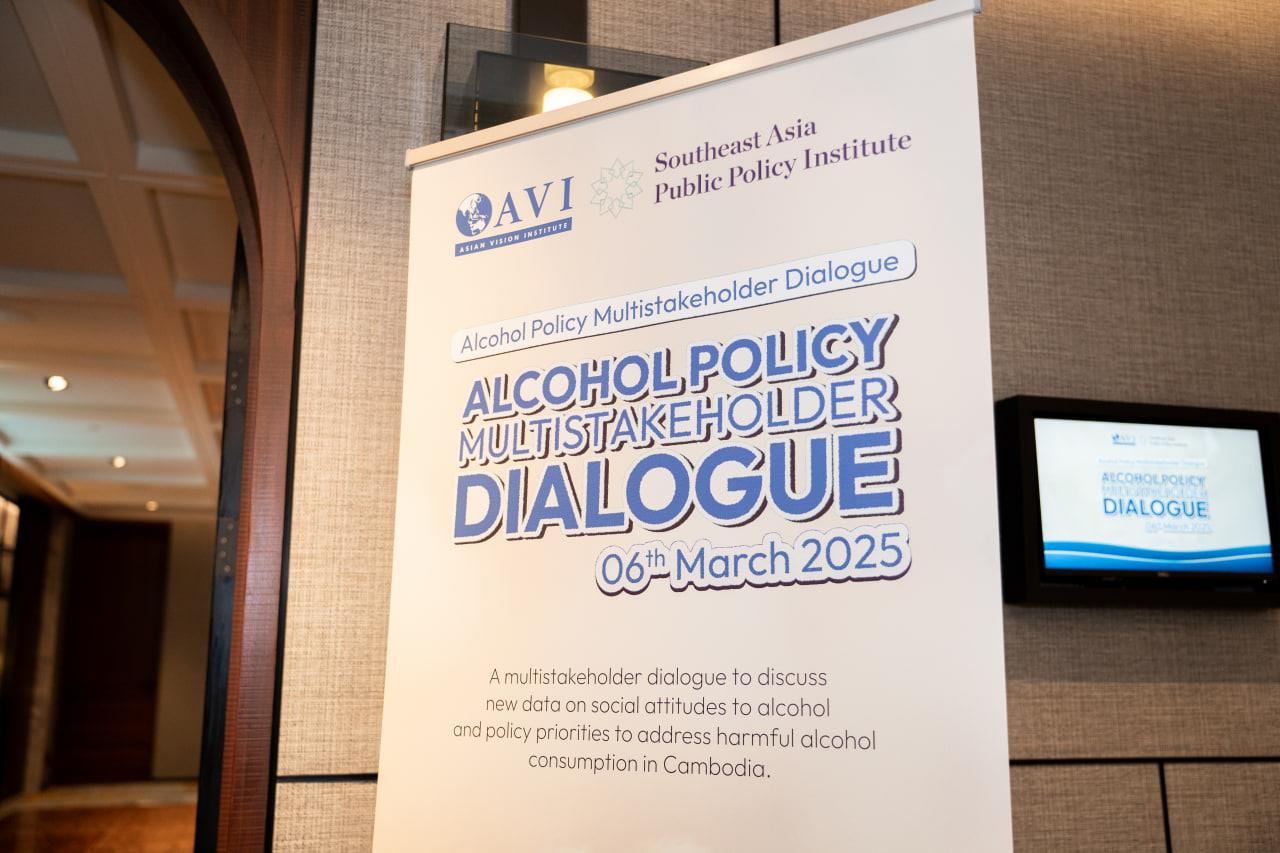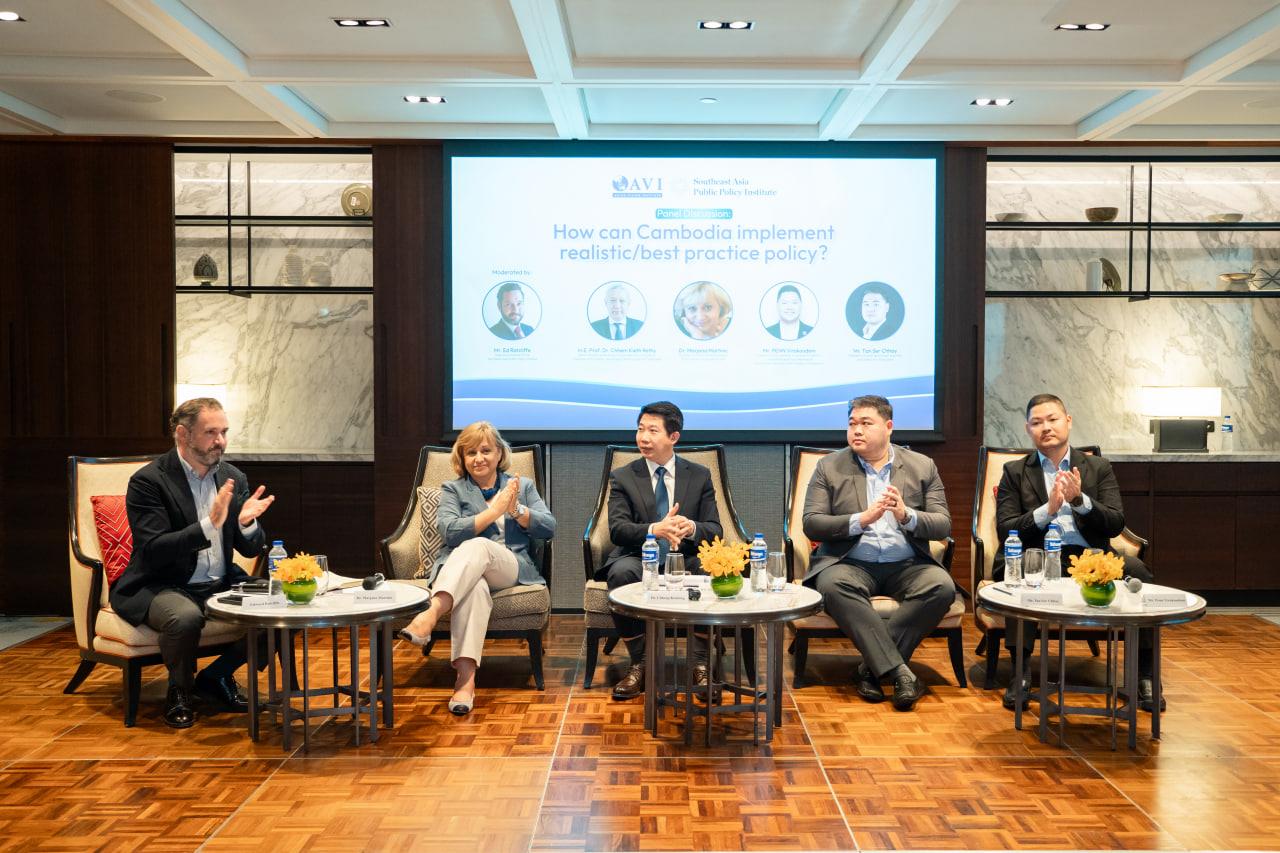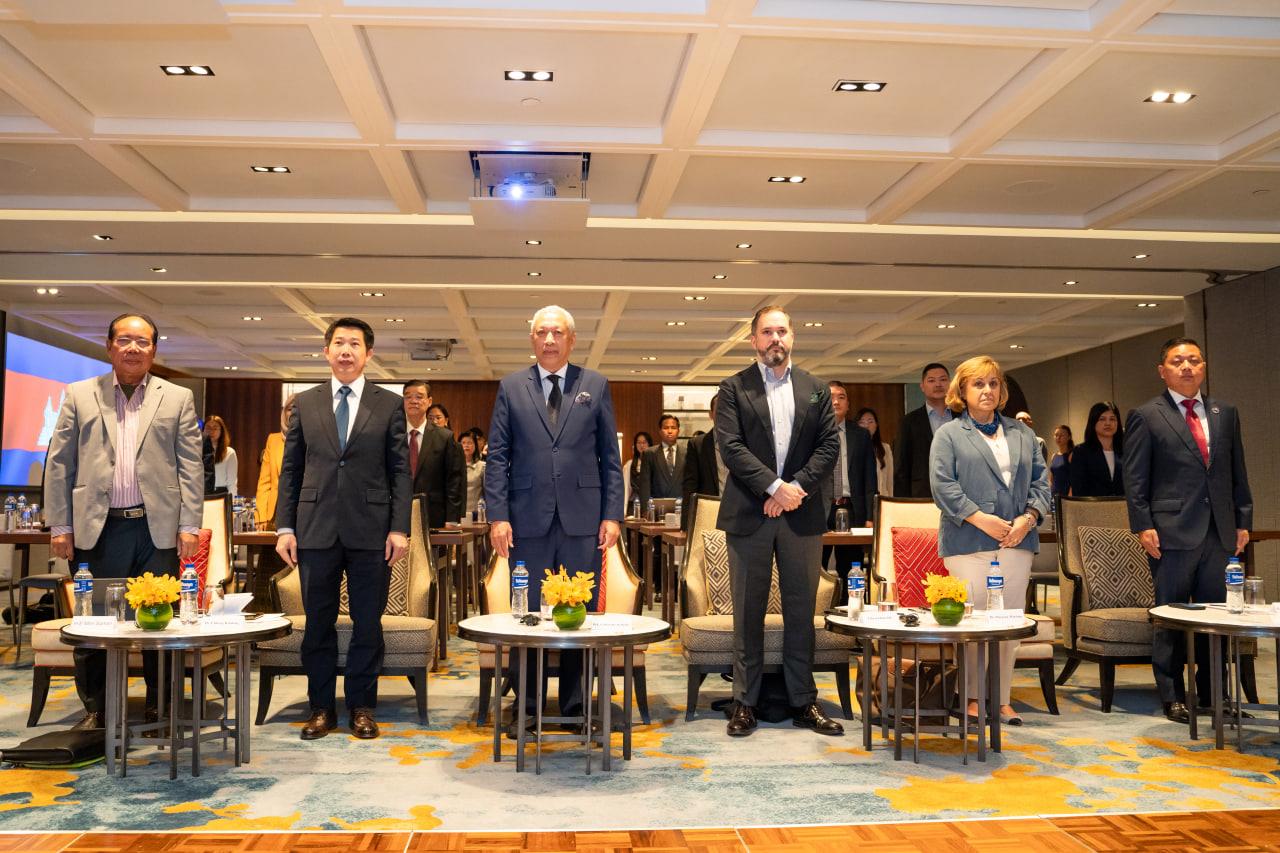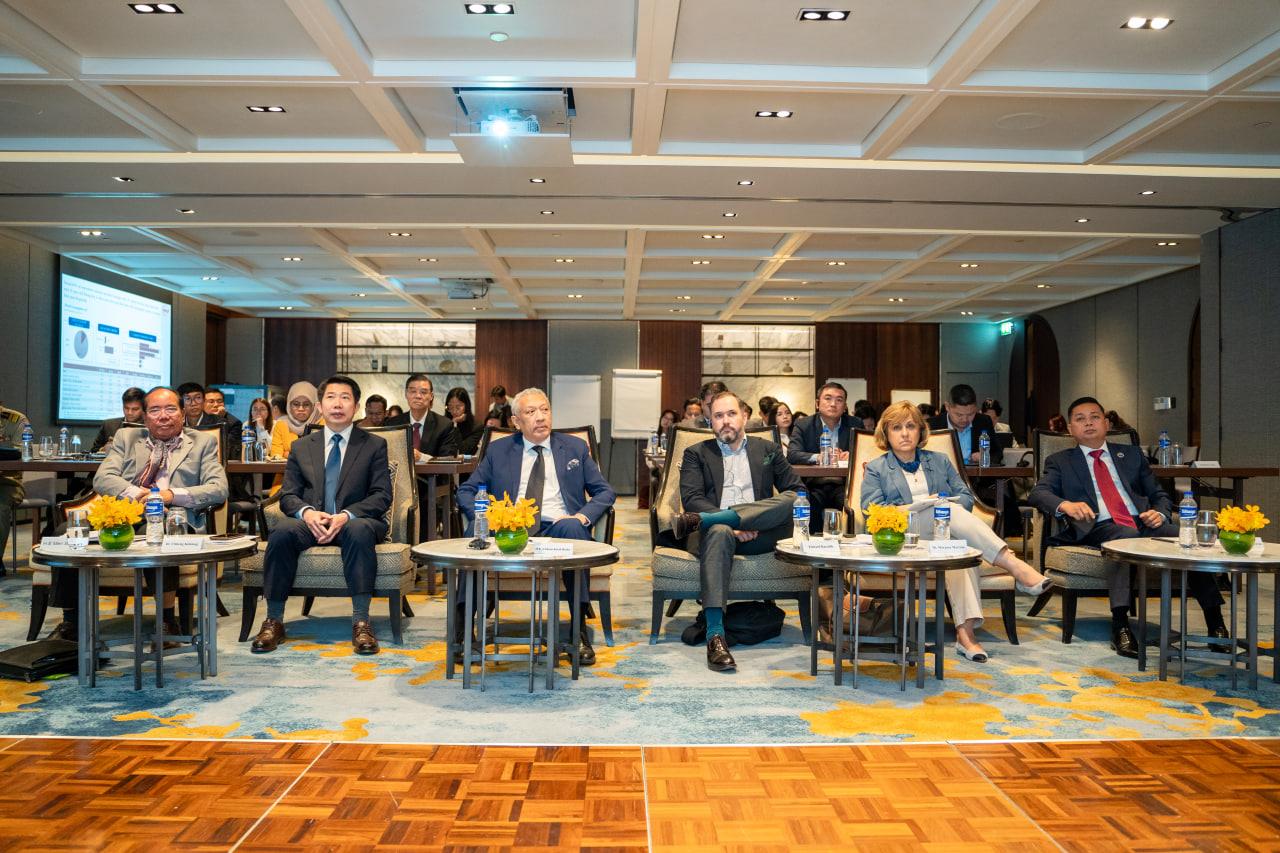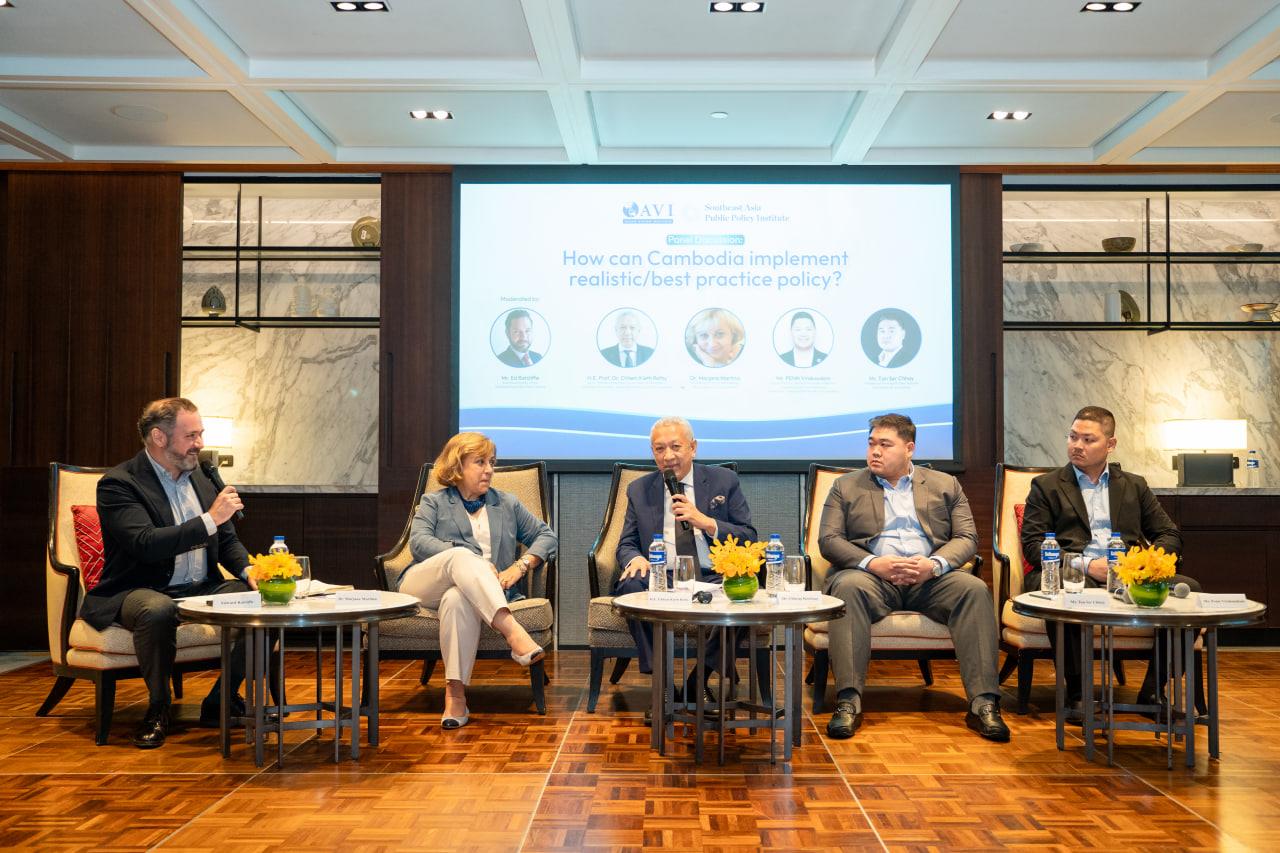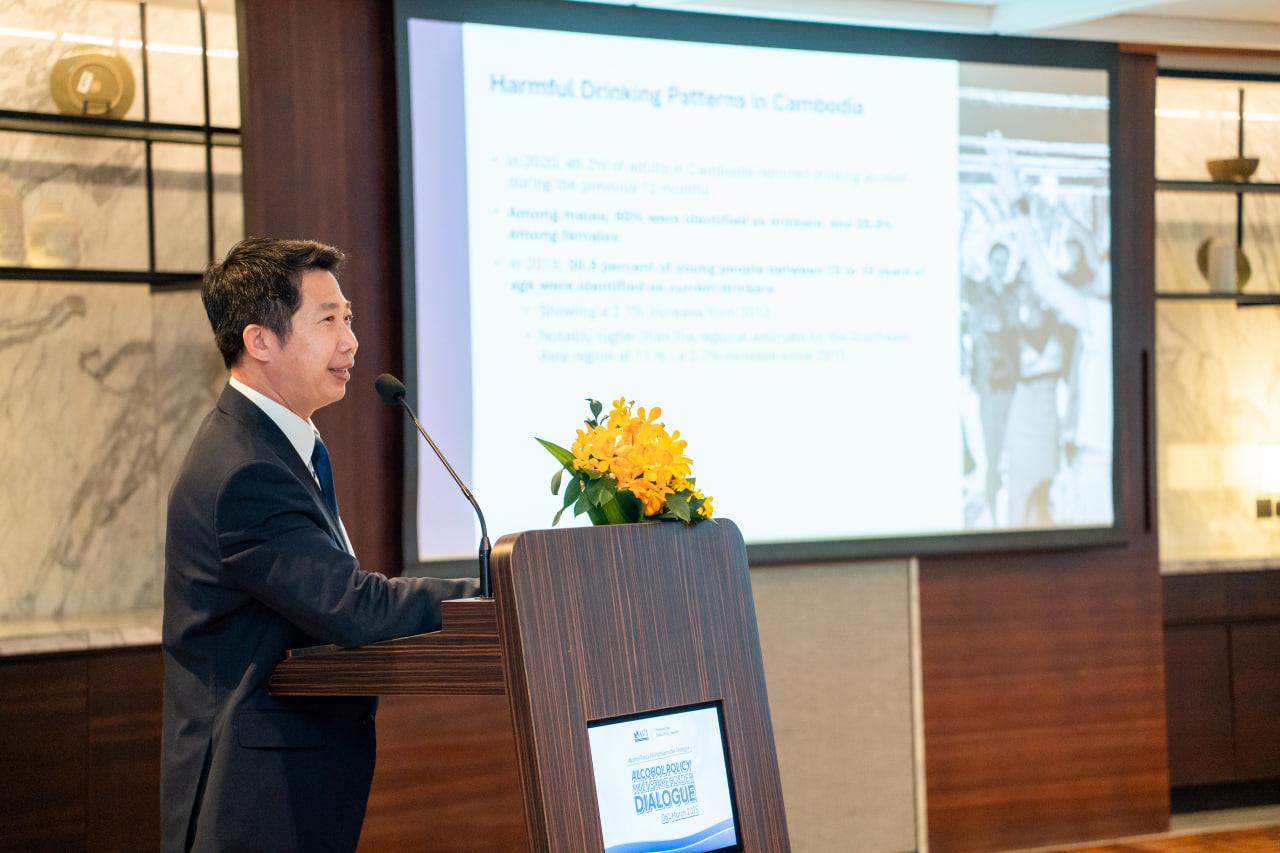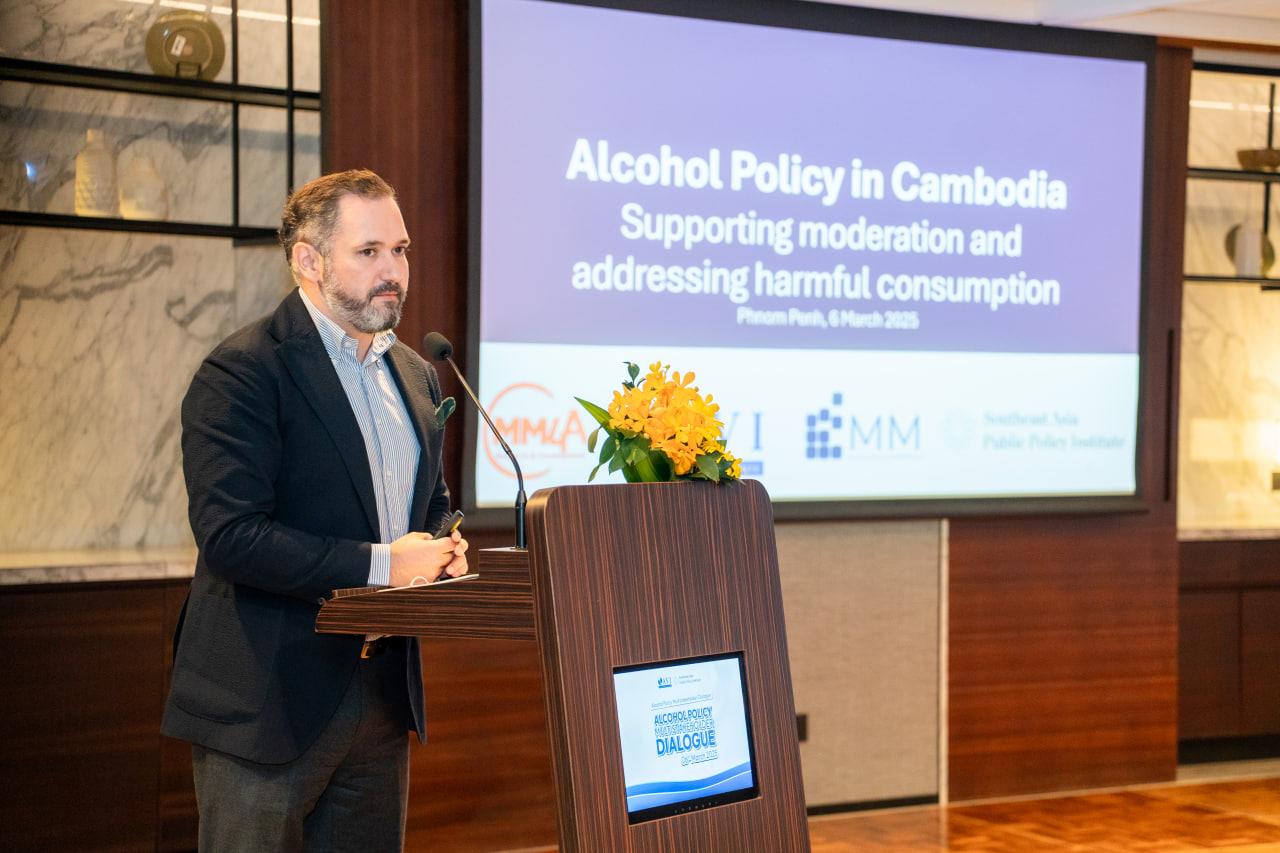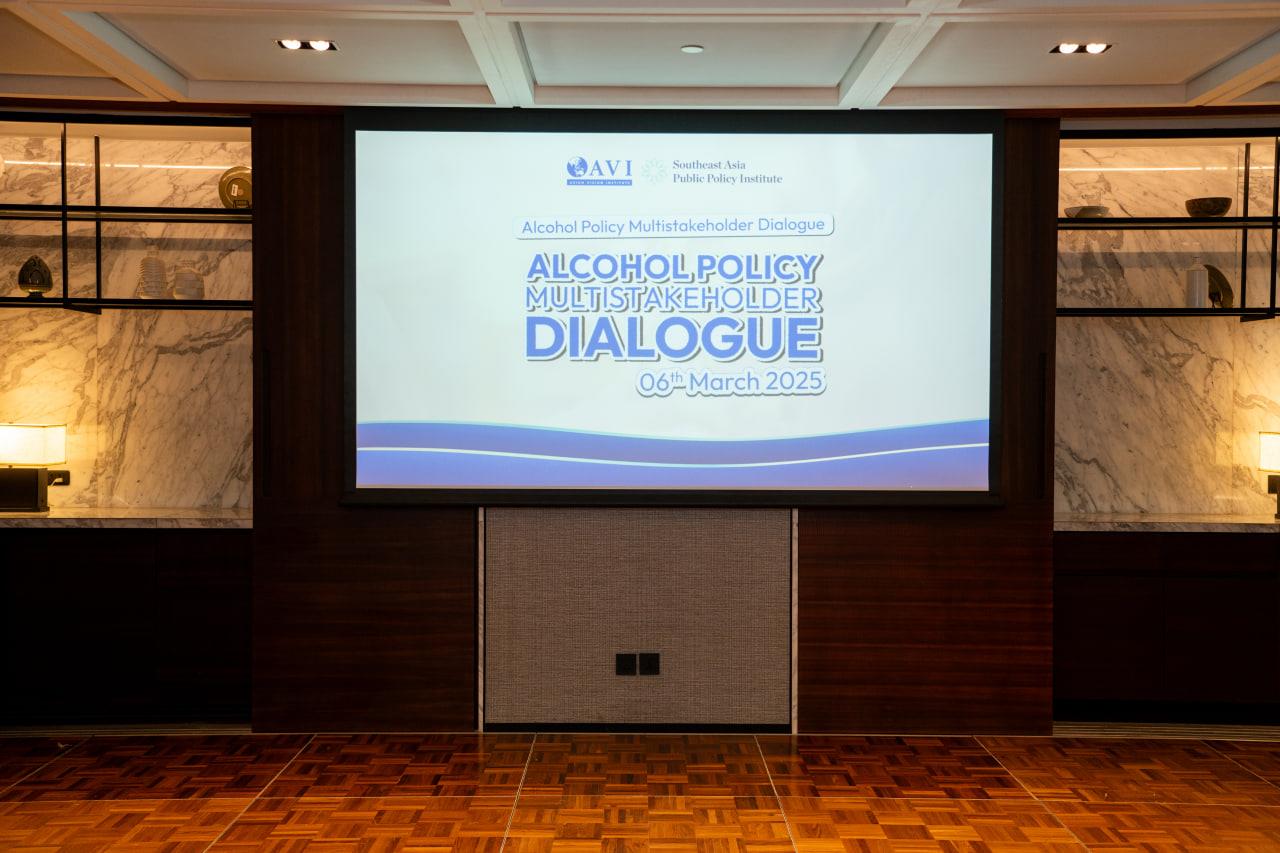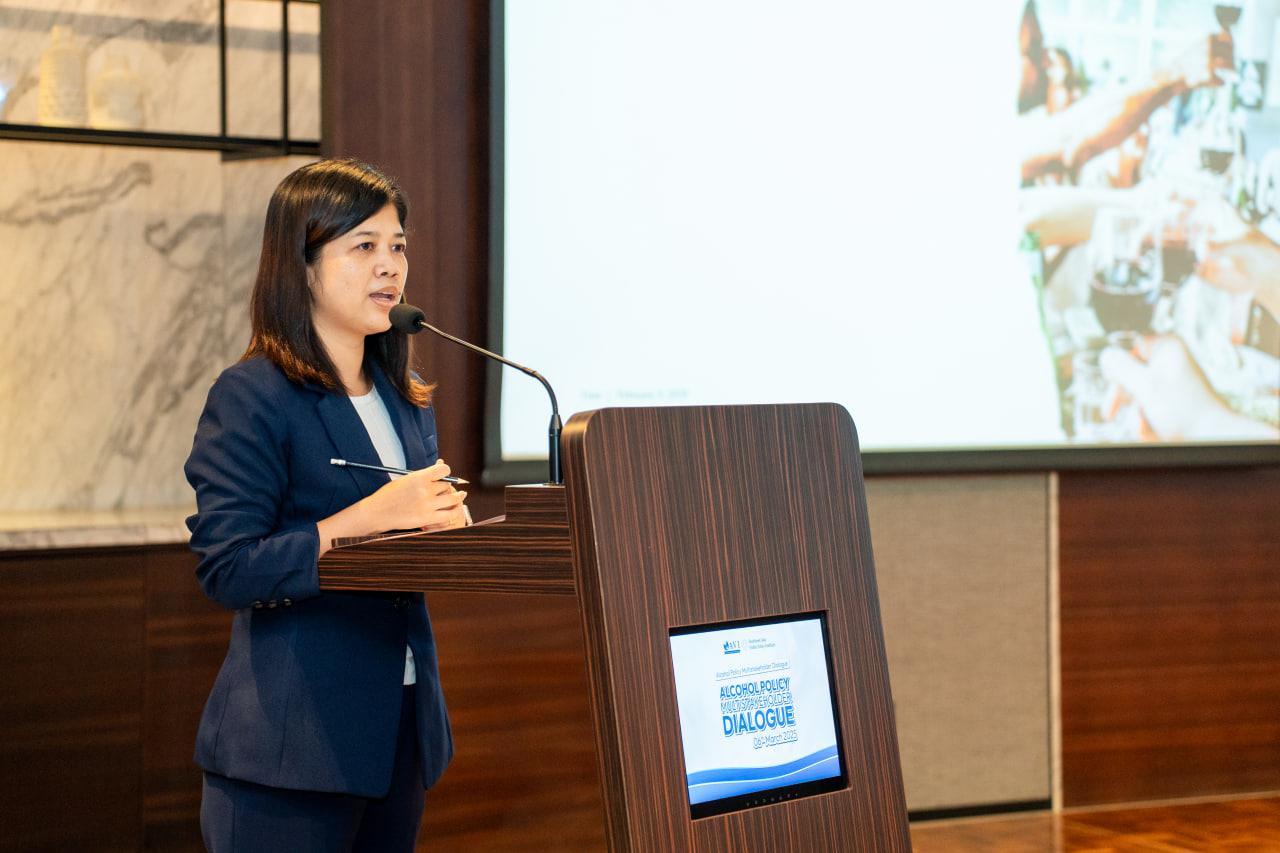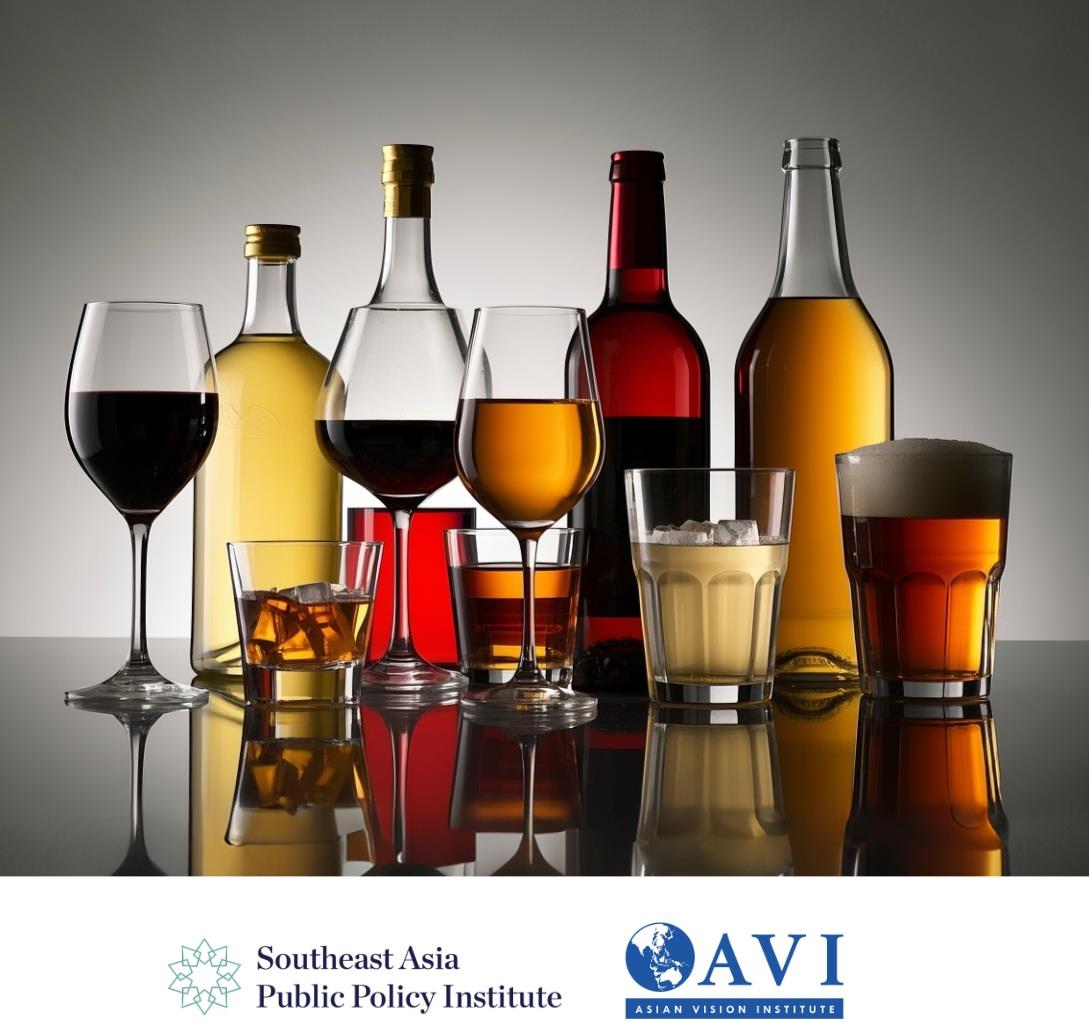Phnom Penh (FN), Apr. 1 – A landmark policy report released today by the Southeast Asia Public Policy Institute (SEAPPI) and the Asian Vision Institute (AVI) calls for urgent action to reduce harmful alcohol consumption in Cambodia. Developing a Policy Landscape in Cambodia to Combat Harmful Alcohol Consumption lays out clear actions to prevent drink-driving, tackle underage drinking, raise awareness of alcohol content (alcohol by volume - ABV), and curb the illicit alcohol trade.
“Cambodia’s alcohol market has expanded rapidly, with beer now accounting for 96% of recorded consumption . While the sector boosts the economy—worth USD 1.1 billion and growing— concerns have been raised about the impacts of excessive consumption habits, including drink driving, binge drinking and illicit alcohol use. The report offers a set of evidence-based recommendations to close critical policy gaps and protect public health,” according to the press release seen by Fresh News on Tuesday (Apr. 1).
Cambodia is currently one of the only countries in Asia without a minimum legal purchasing age (MLPA) for alcohol. This regulatory vacuum has left young people exposed: In Cambodia, 25.8% of young people aged 15 to 19 reported engaging in heavy episodic drinking (HED), compared to 30.9% in Vietnam and 21.6% in Thailand. While frequent alcohol consumption is relatively uncommon among Cambodian youth, half of those who drank in the past 30 days reported at least one episode of intoxication. Rates of HED are also notably higher among males than females in this age group. The report urges the swift adoption of a nationwide MLPA—most commonly applied around the world at 18—to delay alcohol initiation and reduce youth-related harm, as well as supporting policy for regulating the sale of alcohol. A draft sub-decree for an MLPA is already in circulation and could provide a fast route to reform.
The report also highlights the urgent need for national drinking guidelines based on a ‘standard drink’ – a measure that represents a specific amount of pure alcohol, regardless of the beverage type or size. Primary data drawn from a new national survey commissioned for this report reveals widespread confusion: over 60% of respondents believe beer is a "safer" option, even though it accounts for most consumption.
Standardising how alcohol content is communicated through clear guidelines will help the public make informed decisions, reduce binge drinking, and dispel myths that fuel overconsumption.
On drink-driving, the report also finds enforcement of Cambodia’s BAC limit (0.5g/L) to be inconsistent, especially between urban and rural areas. Road traffic crashes involving alcohol have doubled since 2000, with young adults most at risk. The report calls for tougher roadside enforcement, expanded awareness campaigns, and private sector involvement in prevention efforts such as staff training, ride-share partnerships, and responsible serving practices.
Illicit alcohol trade is another growing concern. Homemade spirits and smuggled products remain widely available, especially in rural areas. Without a formal licensing regime, unregulated sales pose serious health risks and erode public trust. The report recommends implementing a structured system for alcohol sales and distribution to support enforcement, improve safety, and reduce the appeal of illegal alternatives.
The findings are backed by a December 2024 national survey of 1,363 Cambodians. Conducted in partnership with MM4A and the National Institute of Social Affairs, the survey explored drinking habits, attitudes, and perceptions around alcohol consumption.
Key survey findings include:
• 86% of respondents consume alcohol; 13% began drinking before age 18
• 26% of adults report binge drinking; men are twice as likely as women
• 60%+ believe beer is “safer” than other alcohol types
• 37% are at medium or high risk due to excessive consumption
• Men consume an average of 50g of pure alcohol per sitting—5 standard drinks
• 94% support national drinking guidelines to help moderate intake
The report has been informed by government, civil society and industry perspectives offered at an Alcohol Policy Multi-Stakeholder Dialogue, held in Phnom Penh in March 2025. It calls for a whole-of-society approach to reform—where government leads, but everyone plays a part in promoting responsible drinking culture. The report highlights the role of the alcohol industry in supporting national policy through responsible marketing, clearer labelling, and consumer education. Civil society and community groups are also key to changing social norms, especially around youth drinking and drink-driving, through targeted outreach and awareness campaigns.
Ed Ratcliffe, Executive Director of SEAPPI, said. “The findings in this report highlight both the challenges and opportunities Cambodia faces in addressing harmful alcohol consumption.
There is a clear need for balanced regulatory measures that address harm – such as the introduction of a mandatory legal purchasing age – as well as greater enforcement of existing measures. As shown in our national survey, Cambodian consumers are also looking for guidance and tools to help them form healthy habits grounded in moderation. The development of national drinking guidelines would be an important step to support them. In addition to action by government, there is a clear role for both economic operators – producers, hospitality and retail; as well as the broader community to help in the dissemination of the new rules and guidelines that will be developed. With evidence-based policymaking and cross-sector cooperation, Cambodia can set a strong example in the region for responsible alcohol management.”
Chheng Kimlong, Director of AVI, said, “This report underscores the urgent need for more robust alcohol policies in Cambodia. The data reinforces the necessity of clear national drinking guidelines, strengthened enforcement, and targeted education efforts to reduce alcohol-related harm. We look forward to seeing policymakers take action based on these evidence-based recommendations. The report shows that harmful alcohol consumption is not just a health issue but a broader societal challenge with implications for road safety, youth well-being, and economic productivity.”
Read full report via: https://asianvision.org/archives/publications/developing-a-policy-landscape-in-cambodia-to-combat-harmful-alcohol-consumption
=FRESH NEWS
